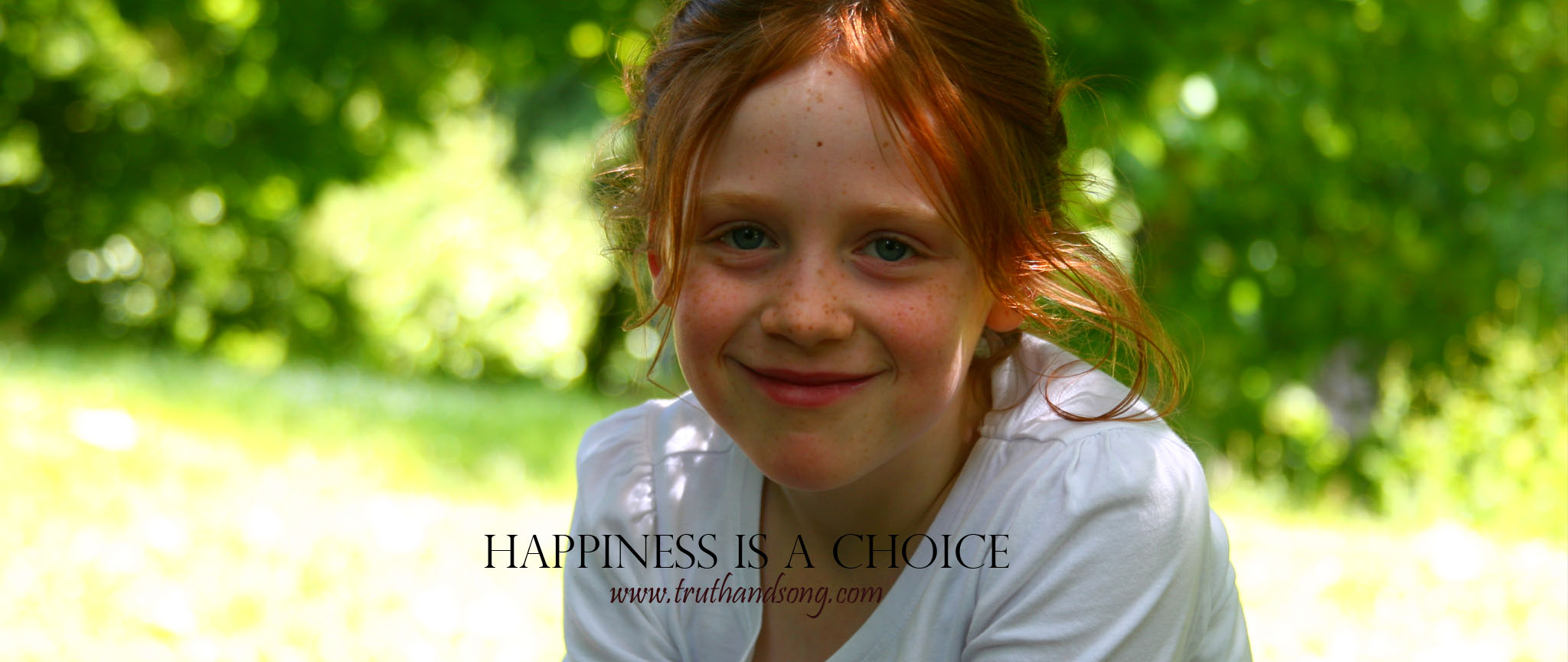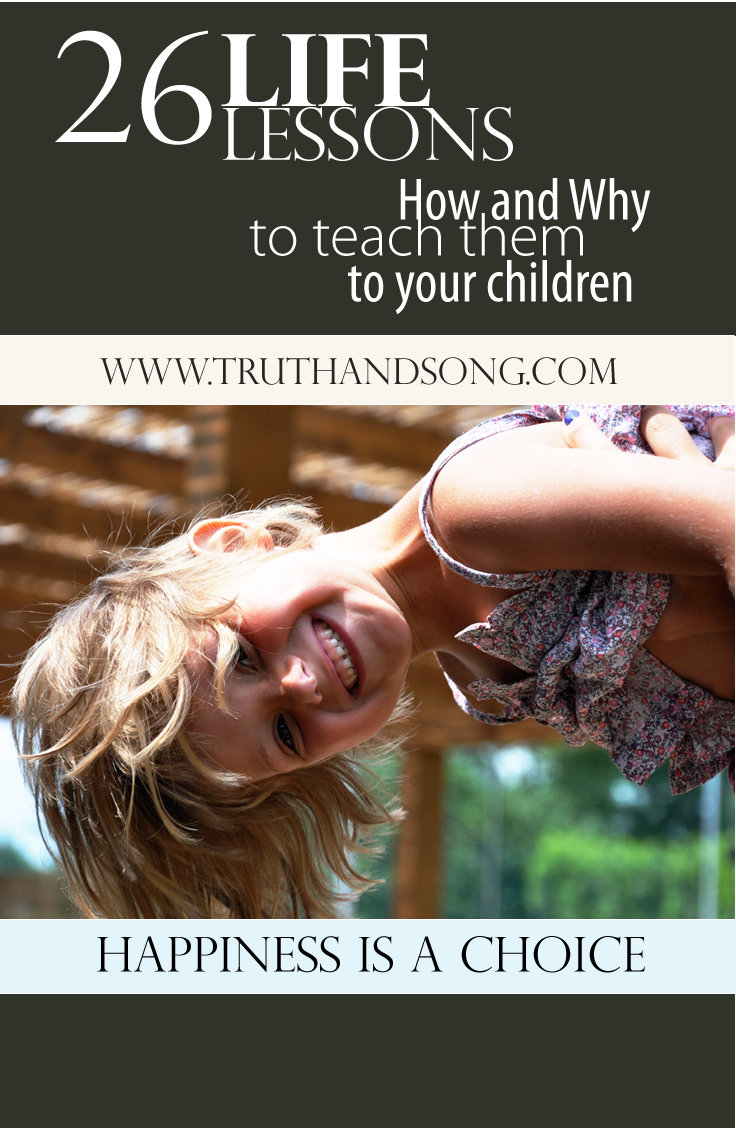When studying for my degree in counseling, I had a particular interest in how emotions effect the brain and vice-a-versa. I remember reading a book called, “Happiness is a Choice” and it just stuck with me.
It has been over 15 years since then and I have had a wonderful life. Still, most of us have probably had dark times of spiritual warfare / darkness. I remember having periods of those literal moment-by-moment thought battles from awake to asleep for months, and I had to practice what I learned. I committed Scripture to memory for “shield of faith moments.” I played Christian music all day to force feed positive thoughts. I clung to the promises of God about a “sound mind.”
I learned that it is possible. Not easy. Possible.
I am passionate about teaching this truth to our children and to people of all ages.
Why is it important?
- There will come a day when everything falls to pieces around them. They may lose a friend, a parent, a spouse, a child, a home or their dreams. They may have a temperament that is prone to discontentment. They may face spiritual warfare, hormonal imbalance, life-long pain or health problems. Eventually, we all will have to choose how we want to be regardless of where we are at in life.
What exactly is happiness?
A more contemporary understanding of the word is: a feeling within you that comes from a sense of present enjoyment.
An older definition from Webster’s 1828 dictionary: Lucky; fortunate; successful
The word is found in the Bible 28 times and usually the context relates more to the latter definition than the former, but oft times it can be used in both contexts. (Prov 28:14, Psalm 144:15, Prov 3:13, Prov 16:20)
Is it really a choice?
If you look at the context of the Scriptures, then YES. If you do certain things then you will be happy. The way the Bible puts it seems rather black and white and simplistic. But in reality sometimes it doesn’t really seem so easy, does it?
- When bad things happen, it is just hard to feel happy. When bad things happen it is hard to feel successful.
- When your family is fighting, stealing, hitting, calling names, saying cruel things, while you feel unloved, unappreciated, bored and you have nothing to do but chores (and that’s just before breakfast), it is hard to feel joy at all.
I have found that when the Bible says something is conditional and possible, than I just need to figure out what its conditions are and make it happen. Happiness takes faith.
Who struggles the most with this?
The visionary
- who just needs to be doing something. When she doesn’t have a goal, she is irritable and moody. That seems to become her vision. She grumps, whines and spreads discord or discontentment all around her.
The discontented
- who determines within his heart that he won’t be happy. He just lowers his eyes into a glare, slouches his head and stubbornly refuses to overcome his mood.
The emotional
- who wants to be happy, but once a negative stimulant enters her mind she really struggles to get out of a funk.
The disobedient
- who doesn’t want to do what he knows is his responsibility and his attitude loses it’s sweetness as a result.
How do I teach to a child that it is a choice to be happy?
You hear this over and over, but model it.
- There are days when adults wake up with the world seemingly falling in around them. It is easy to snip at the kids, but take this opportunity and tell the kids that today is a rough day.
- Tell them that you are going to smile anyway.
- Explain that you are choosing to be happy in spite of your problems.
- Ask them to help you count your blessings.
- Start counting them.
- Every time you are tempted to let your thoughts become negative, say out loud. ” I’m really struggling right now.” and then do what you have taught them.
What do I teach them?
It is very important to teach these lessons first when it is not a time of conflict.
- Kids need to know the Phil 4 road. It is the key to choosing happiness.
- The song “Rejoice in the Lord always and again I say rejoice.” Teach and sing with them all the songs you can think of that have to do with JOY. (Phil 4:4)
- To look at themselves and see if they can actually change anything in their situation. Are they causing a problem. (Phil 4:5)
- To pray. Pray all the time. Pray out loud. Pray about everything. (Phil 4:6)
- When you pray about everything, then it is easy to thank God for everything.
- If you praising God, doing what you can, praying about what you can’t, and thanking God for what He is doing, then
- Make it a habit to not complain both in your mind and out your mouth. (Matt 15:11, Phil 2:14)
- Instead, make it a habit to count your blessings. (Teach them this song too.)
- Explain that this is a moment by moment choice.
- Make the verse Phil 4:8 into a game or song and sing / play it often.
What happens when the kids are choosing a bad mood?
- Separate them from the situation.
- Walk through the steps above, explaining why.
- When you get to the end, have them give you 10 things for which they are thankful … with a smile.
- If / when they refuse (whatever their manipulation of refusal), choose your method of discipline and follow through until they comply.
- I have found that if they can do it with a smile, that usually a happy mood returns on its own.
What’s the point?
This gives your child the tools they need to train their mind. It will become a habit they use their whole life. It will result in a happier person long-term.
Did you miss the other Life Lessons in this series?
Check them out and share them with your friends.
Find them here: 26 Life Lessons



Leave A Comment
You must be logged in to post a comment.